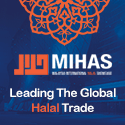malaymailonline
KUALA LUMPUR, Feb 27 — American pharmaceutical companies have expressed their concerns over the Ministry of Health’s (MOH) guideline on “halal” — or permissible in Islam — pharmaceuticals, claiming preferential treatment.The concern was among the many issues highlighted by the Pharmaceutical Researchers and Manufacturers of America (PhRMA) in its annual submission to the United States Trade Representative this month.
The report, which highlighted the challenges faced in the key international markets for innovative pharmaceutical firms, was quoted by Fitch Group unit BMI Research in its follow-up publication released today.
“According to MOH’s 2017 guideline on halal pharmaceuticals, the government provides preferential treatment to medicines with halal ingredients in government procurement.
“As such, PhRMA member companies are concerned that these guidelines could have unexpected negative implications on patients’ health,” the PhRMA report said.
Last year, state news agency reported that Islamic Development Department of Malaysia (Jakim) became the first halal certifying body to certify controlled/prescriptive medicines (Ethical Products) based on the MS2424:2012 Halal Pharmaceuticals ? General Guidelines.
The current global halal pharmaceuticals prospect is valued at US$75 billion (RM331.9 billion), and estimated to reach US$132 billion by 2021.
PhRMA also complained that Putrajaya’s procurement process prefer locally-manufactured goods.
“The Malaysian government indirectly discourages an open and competitive marketplace for international pharmaceutical compounds through procurement preferences for locally manufactured products.
“For example, the government recently announced that it will grant three-year procurement contracts to companies that move production of imported products to Malaysia,” the group said.
This comes as PhRMA designated Malaysia a “priority foreign country”, together with South Korea in the region, complaining about what they saw as poor intellectual property (IP) protection and non-transparent compulsory licences (CL).
“Malaysia’s designation as a ‘Priority Foreign Country’ in PhRMA’s 2018 submission highlights inadequate levels of intellectual property protection and mandatory medicine price disclosure as ongoing concerns for multinational drugmakers,” BMI said.
“Additionally, while the government has adopted a policy which prioritises the welfare of Malaysians, the use of a non-transparent process to issue compulsory licenses as a method to coerce price reductions, will continue to undermine investment by innovative drugmakers in the country.”
PhRMA had highlighted so-called “onerous IP acts, policies and practices” and the use of CL to promote the local production of medicines at the expense of manufacturers in the US.
“The non-transparent manner in which the announcement of the CL was made raised serious concerns as prior to the announcement, the Ministry of Health did not offer to meet with the relevant industry stakeholders to consider their concerns or evaluate their input,” BMI said.
The drugmakers had stated that CL issued by the Malaysian government “undermine a core tenant of IP protection and, if unaddressed, could inspire other countries to advance similar compulsory license schemes undermining vital IP”.
….
Read more at http://www.themalaymailonline.com/malaysia/article/report-us-pharma-firms-concerned-over-malaysias-halal-guidelines#IxfaQqIsPJ8QYHr6.99



